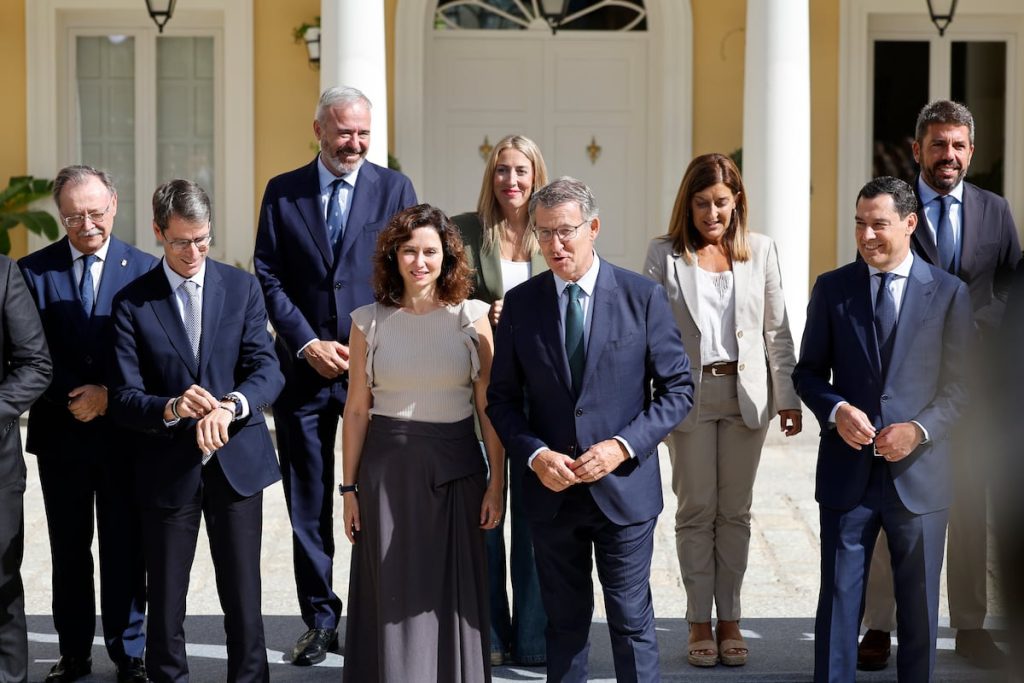The government of Pedro Sánchez is facing complications in its continuity due to increasingly controversial decisions. The necessity of having a heterogeneous and contradictory majority makes achieving balance more difficult, leading to political errors and growing discontent within the party and potential support from opposition groups. Despite efforts to stretch majorities with or without a budget, the government is facing a conundrum that may lead to unusual and unpredictable actions by Pedro Sánchez, signaling a possible risky strategy for the future. This presents an opportunity for the opposition to demonstrate their ability to provide reasonable solutions to the public’s problems and showcase a technically proficient team. Building trust among moderate voters who can sway government majorities is essential.
Alberto Núñez Feijóo’s statement on Friday aligns with this sentiment, as the PP aims to position itself as a credible institutional alternative. The party emphasizes unity while respecting multilateralism, consistent with the autonomous model advocated by Mariano Rajoy’s PP and embraced by Feijóo in Galicia. The delicate balance emphasizes the difference between possible models and leaves the door open for a funding proposal for Catalonia that must align with the constitution’s equity for all citizens. The recent departure of Vox from regional governments led by the PP and the contentious Catalonian funding proposal between PSC and ERC further complicates the situation. The PP’s credibility hinges on its ability to bridge the gap from institutional declarations to technical feasibility, navigating complex financial and regulatory considerations.
Transitioning from institutional statements to practical viability through financial analysis and legal interpretation will ultimately test the credibility of the PP. The party must demonstrate its ability to navigate the intricacies of funding models and competence in fulfilling the promises it makes. This qualitative leap is crucial for the party’s future prospects in government. Feijóo’s success in maintaining unity and respectful discourse within the party will be tested by the potential for internal discord from elements seeking attention through conflict. Maintaining a civilized conversation, as emphasized by John Dewey, is vital in the context of liberal democracy and will be key in navigating future challenges.
José María Lassalle, a former government official under Mariano Rajoy, warns of the fragility of the current political landscape and the need for thoughtful and strategic decision-making. As the government grapples with internal and external pressures, there is an increasing urgency for effective leadership and coherent policy implementation. The shifting dynamics and evolving challenges require a level-headed approach and a pragmatic response to complex issues. Lassalle’s insight underscores the importance of understanding the intricacies of governance and the imperative of engaging in constructive dialogue to navigate the turbulent political climate.
In conclusion, the current political scenario in Spain is marked by uncertainty and volatility, with the government facing mounting challenges and contentious decisions. The delicate balance of power and the diverse nature of the ruling coalition present unique obstacles that require careful navigation. The opposition’s role in offering viable alternatives and demonstrating credibility will be crucial in shaping the future direction of the country. As the political landscape evolves, the need for effective governance and strategic decision-making becomes increasingly apparent. Balancing competing interests and maintaining unity within the political spectrum will be essential in overcoming the current challenges and steering Spain towards a more stable and prosperous future.















